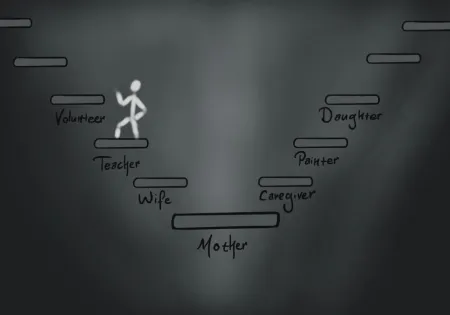Foundations' Blog
The Struggle of People Pleasing and How to Overcome It

Can you relate to this feeling? The nagging urge to say yes when you really want to say no. The desire to make everyone happy even if it leaves you exhausted and overwhelmed. We often struggle with people pleasing and fearing what others think of us. We want to be liked. We want to make a good impression. We want to fulfill the command to love our neighbor. But at what cost? When does our need to please shift from love and service to anxiety and approval seeking? If you constantly worry about offending others or struggle to be authentic in your relationships, it may be time to overcome your tendency to be a people pleaser.
Why We Tend to Fear People & Seek to Please Them
As embodied souls, created to be relational, many of us innately desire to appease people and win their approval. This urge often stems from our fear of rejection and desire for acceptance.
- We worry about what others think of us, so we try to meet their expectations. We say "yes" when we should say "no" to keep th...
True Perfection, in Christ Alone

Have you ever felt an underlying nagging sense of shame or embarrassment? When you pause to think about it, you know you didn't do anything wrong, yet it feels like you have. If you have ever felt this way, you are not alone and there isn't something wrong with you. It just means there is a place inside of you the Lord wants to apply His truth so you can experience more of the abundant life He came to give you.
In Webster's Dictionary, shame is defined as "a painful emotion caused by consciousness of guilt, shortcoming, or impropriety." For the sake of this blog post, I want to highlight the words shortcoming and perfection. The type of underlying shame I am focusing on today has to do with an underlying sense of falling short, not being good enough, or somehow missing the mark but not actually knowing how you missed it… it's just a nagging feeling. This nagging feeling can stem from various sources, but let's focus on the distinction between worldly and religious perfection versus pe...
Forgiving Yourself and Alternate Endings

Charles arrived at the counseling appointment defeated. He could not hide his slumped shoulders or his downcast face. He didn’t look me in the eyes, nor could he wrestle a smile during his typical greeting. Charles sat slowly on the loveseat facing me while looking down and wondered why he kept coming back. He admitted he often feels better when he leaves, but yesterday’s wounds are today’s ghosts. His past sins haunt him and hound him until he feels utterly worthless and undeserving of any good thing. He stated, “I just can’t forgive myself.” Charles was living in self-condemnation, and he had some choices regarding how he would like to resolve his dilemma: Will he accept God’s grace, or will he live in self-condemnation?
If you watch movies, you are probably familiar with alternate endings. Writers and producers develop several endings to a movie to see which one would go over best for the test audience, and then they decide which ending will be released. They hope their final decis...
Where's Your Identity?

We All Identify in Some Way(s)
Identity is a powerful thing. It is how we define ourselves, and it clarifies our purpose. It can also be challenging to nail down. Think about it. We all have thousands of identities at any given moment. Sometimes that makes it difficult to answer basic, vital questions like, 'Who am I?'
We're going to walk through a simple visualization technique that hopefully makes it easier to sort all of that out. Let's start by imagining a bunch of steps (as in the image above). Think of each step as just one facet of your identity. For example: student, brother, mechanic, mother, stamp collector, priest, knitting enthusiast, and so on. Write a few down, and see how many you can come up with in your own life. For our purposes, let's put the most important ones lower down on the diagram – closest to our foundation.

At any time, we might live out one facet of our identity more prominently than others. For the woman in the example above, today she's feeling really...

